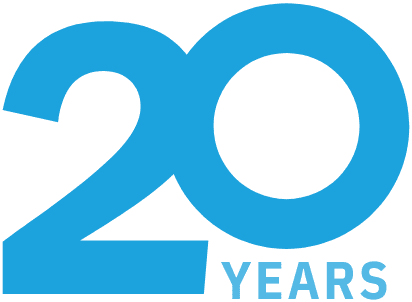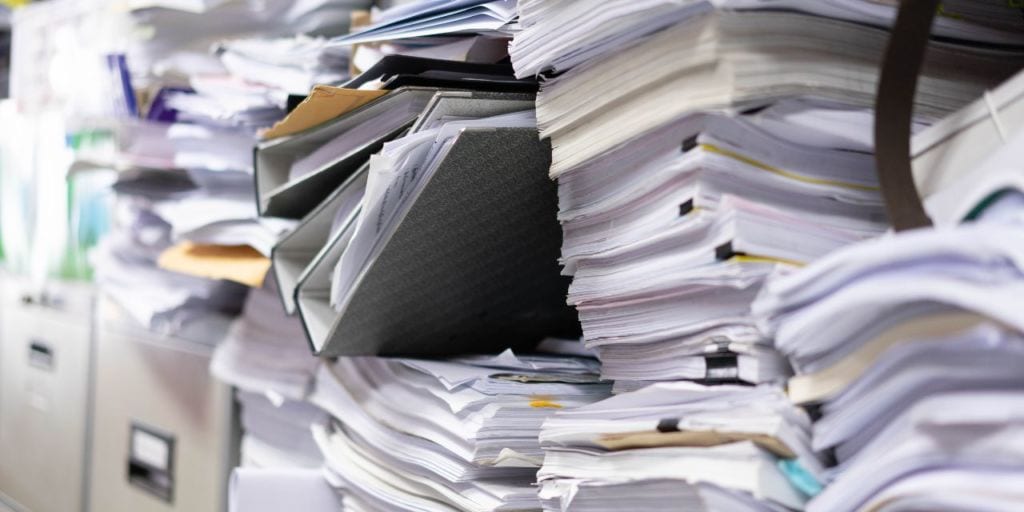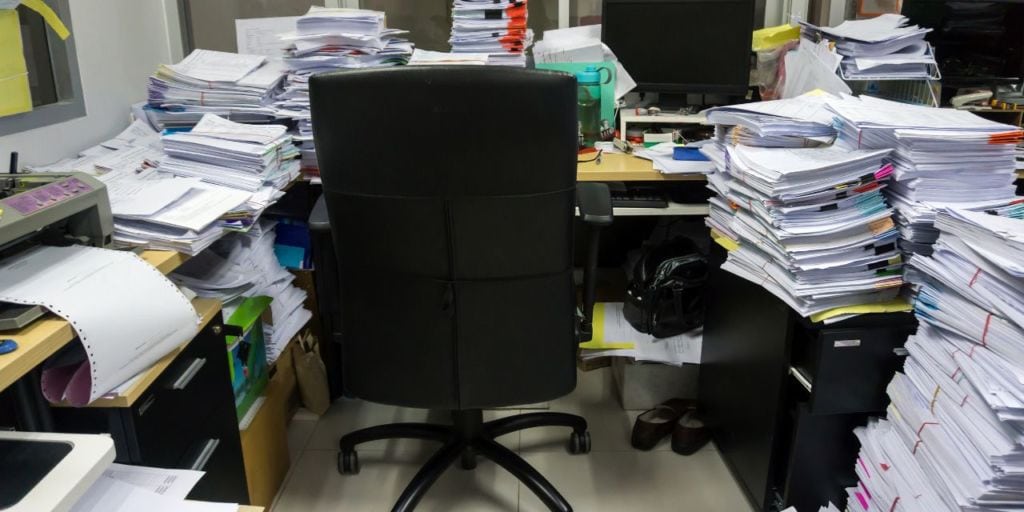It’s time to purge your documents if you have overflowing filing cabinets or struggle to find important papers. This article will guide you through clear signs it’s time to purge your documents that indicate when a document cleanup is needed.
Key Points
- Overflowing filing cabinets and difficulty locating important documents indicate it’s time for a document purge.
- Transitioning to digital files helps reduce physical clutter but requires ongoing organization to prevent digital hoarding.
- Regular purging of outdated or unnecessary documents ensures compliance with legal requirements and enhances data security.
Your Filing Cabinets Are Overflowing
We’ve all been there—filing cabinets bursting at the seams with documents we don’t even remember filing. When your physical storage is packed to capacity, it’s a glaring sign that it’s time to start purging those old, unnecessary documents. Physical hoarding doesn’t just take up space; it also creates a stressful environment that can significantly impact your productivity.
Imagine walking into your office every day, greeted by neat, organized cabinets instead of chaotic piles of paper. Establishing a routine for sorting through papers daily can prevent overwhelming clutter from accumulating. A regular purge helps clear out unnecessary files and maintain an organized workspace, making it easier to focus on the tasks that truly matter.
Prioritizing document purging frees up valuable storage and creates a more efficient, less stressful work environment. Start small—perhaps with a single drawer or a specific type of document—and watch how quickly the sense of order spreads throughout your office.
You Can’t Find Important Documents Easily
There’s nothing more frustrating than spending precious minutes, or even hours, searching for an important document that seems to have vanished into thin air. If you can’t find important documents easily, it’s a clear sign that your filing system needs an overhaul.
Often, our files are cluttered with irrelevant documents like old bills or outdated statements that we no longer need. Regularly clearing out these unnecessary documents can lead to a more organized and less stressful work environment. Discarding irrelevant documents makes room for important ones and enhances overall efficiency.
A document management system streamlines the retrieval process, facilitating quicker access to important files. A logical folder structure is crucial for this, as it facilitates quicker access to essential documents. The benefits are not just practical but psychological as well; maintaining an organized office minimizes distractions caused by clutter and enhances productivity.
An annual review of your files ensures that you retain only necessary papers. Regular audits can identify unnecessary files to destroy or organize, keeping your workspace tidy and functional. These simple steps can greatly boost productivity and reduce stress levels in a time-conscious world.
You’ve Transitioned to Digital Files
The digital age has revolutionized the way we handle documents. Transitioning to digital files is essential for reducing physical clutter and enhancing organization. Professional scanning services, like Blue-Pencil, can help reduce paper clutter by allowing users to scan and store documents electronically.
After digitizing documents, disposing of physical copies prevents unnecessary clutter. This not only frees up physical space but also simplifies the organization of your digital files. Utilizing digital tools for note-taking and document sharing can significantly decrease paper clutter in the office.
However, the shift to digital content isn’t without its challenges. Digital hoarding can become just as overwhelming as physical hoarding if not managed properly. Digital hoarders should focus on organizing digital files regularly, setting up a logical structure, and using cloud storage wisely to prevent digital clutter from becoming overwhelming, especially when considering the volume of digital data involved in their digital life.
Remember, the goal is not just to store computer files on an external drive but to make them easily accessible when needed. Maintaining an organized digital space for personal devices, photos, important documents, and other content is crucial for optimal device performance and overall productivity.
Sensitive Information Is at Risk
In today’s world, keeping excessive documents can increase your susceptibility to cyber incidents. Sensitive information, if not properly discarded, poses significant security risks, including identity theft and data breaches. The cost of a data breach can be staggering, reaching up to $242 per exposed record.
A purge shredding company enhances data security by making sensitive information irretrievable. This not only protects your business but also improves customer comfort with your data handling practices. Properly discarding sensitive information is a key step in safeguarding your online privacy and overall security.
A fire-safe storage solution for vital documents enhances security while keeping them accessible. More documents mean more effort to manage risks associated with sensitive information. Regularly purging old documents reduces clutter and minimizes the risk of security breaches.
Proactively securing sensitive information protects your data and ensures smooth business operations. The peace of mind that comes with knowing your information is safe is invaluable.
You’re Running Out of Office Space
Running out of office space is a clear indicator that it’s time to purge your documents. Excessive data storage can make a business more appealing to cybercriminals due to the volume of sensitive information available. This not only poses a security risk but also affects the overall productivity and efficiency of your office.
When your device requests more cloud storage, it’s a sign that you need to evaluate what’s using up space. Holding onto outdated apps may still house sensitive information that could lead to identity theft if not secured. Clearing out old papers and data can free up physical and digital space, making your office more functional and organized.
Addressing limited space issues creates a more productive work environment. A well-organized office is both aesthetically pleasing and functionally superior, enabling focus without distraction from clutter.
Legal Requirements Have Expired
Legal requirements dictate the retention period for certain records. Once these requirements have expired, it’s safe to dispose of the documents. Organizations must have a retention policy that defines how long personal records are kept before disposal.
A common timeframe for retaining financial documents is seven years, but this can vary depending on specific regulations. When records are no longer needed, they can be disposed of following established guidelines. This not only ensures compliance but also helps in clearing out unnecessary documents from your filing cabinets.
Clearing out file cabinets after tax season effectively removes unnecessary documents. Adhering to legal retention policies ensures business compliance and an organized, clutter-free workspace.
You Feel Overwhelmed by Clutter
Feeling overwhelmed by clutter is a common experience for many. Losing control of your data can induce stress and create unmanageable situations. Visual clutter, like desktop chaos, makes it harder to concentrate and decreases overall productivity.
The impact of clutter on well-being is significant. Seeing unread email notifications can be stress-inducing and contribute to a sense of being overwhelmed. Poor organization is a common trait among individuals overwhelmed by excessive documents. By taking control and organizing your space, both physically and digitally, you can significantly reduce stress and improve productivity.
Summary
In summary, recognizing the telltale signs that it’s time to purge your documents can lead to a more organized, productive, and stress-free environment. From overflowing filing cabinets and lost documents to digital clutter and security risks, each sign points to the need for regular document management.
By taking proactive steps to declutter your space, you not only enhance your efficiency but also protect your sensitive information and improve your overall well-being. Embrace the journey to a more organized life and experience the transformative power of a clutter-free workspace.
Frequently Asked Questions
How often should I purge my documents?
You should purge your documents annually to keep only what is necessary and discard outdated or irrelevant papers. This practice helps maintain an organized and efficient filing system.
What should I do with physical documents after digitizing them?
After digitizing your physical documents, it is crucial to securely dispose of them, ideally using a professional shredding service to protect sensitive information. This helps prevent unnecessary clutter and ensures data security.
How can I organize my digital files to prevent clutter?
To prevent digital clutter, establish a logical folder structure and consistently organize your files. Utilizing cloud storage and digital tools for note-taking can also enhance your file management efficiency.
What are the legal requirements for document retention?
You must adhere to specific regulations that dictate document retention periods, often retaining financial documents for seven years. After this period, follow established guidelines for proper disposal.
How can I reduce the stress caused by clutter?
To effectively reduce stress caused by clutter, regularly purge both physical and digital documents, and establish daily routines for sorting and maintaining a tidy workspace. This approach creates a more organized environment that can alleviate feelings of overwhelm.





